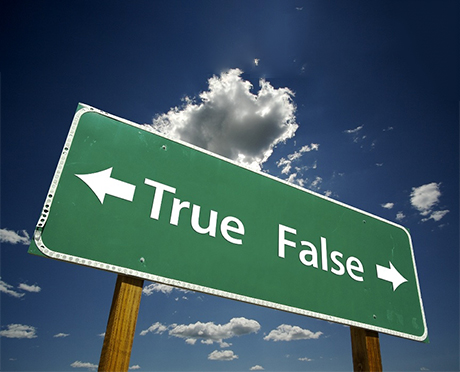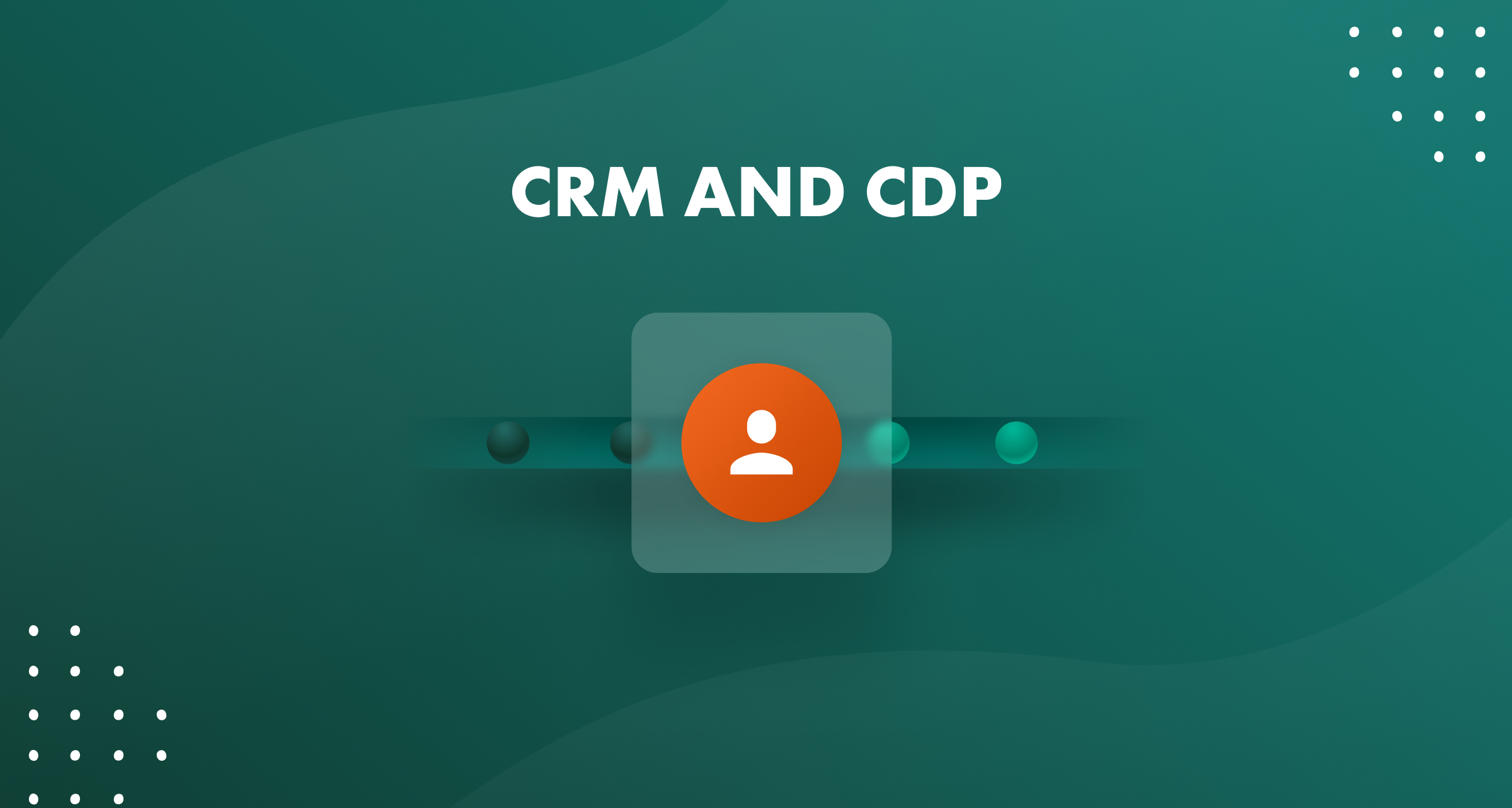Taking a customer relationship management (CRM) system on board in any business always starts with a bunch of good intentions.
Yet, just like in the famous proverb (“The road to hell is paved with good intentions”), the good intentions of saving money, centralizing activities, streamlining processes and increasing productivity often end up in a place far from the desired destination.
Back in 2013 Merkle Group Inc. found out that 63% of CRM projects in large enterprises fail. Meanwhile, Forrester Research reported that 49% of all CRM projects fail. And there are many reasons why. Still, in the majority of cases it all boils down to people rejecting CRM.
But, why? Why do sales people hate CRM?
Sales people and CRM: a love-hate relationship?
The benefits of using CRM software was tested by Aberdeen research, which concluded that companies who use CRM software saw higher customer retention rates, better team attainment of quotas, and better attainment of quotas among individual sales reps.
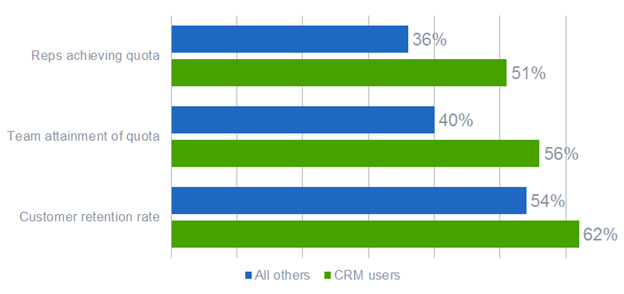
Sadly, not many sales people initially understand the advantages that CRM can bring to their business routines. More often than not they tend to dislike the very idea that they have to change their work routines and start doing it all through a sales CRM system.
If you’re in sales, you know that the secret to sales success is working with people, not with a software. So logging information into a sales CRM can be seen as an annoying activity that prevents you from doing what you were hired to do – sell.
Now, there are many excuses of why CRM is not something that sales teams often embrace, but as Brandon Lipman recently said on Twitter, "Good sales people love their CRM".
CRM is the central hub of sales. Should be live, clean and incredibly well thought out. Good sales people love their CRM.
— Brandon Lipman (@lipmanb) October 23, 2019
In this blog post, we’ll take a look at the six most common CRM myths.
1. Paper is just simpler
So you love your spreadsheets, your pen and your notepad… You think it is easy to find your sales prospect’s name and telephone number, and even their e-mail in a printed out list. It’s just very simple, as you can tick off those you have called already, take notes, etc., etc.
But, you can’t deny that the whole process simply takes too long, and there are too many things that you need to keep in your head. For example, you have to remember what you promised your customer to do, to send or to find out. You also need to remember when you agreed to follow up on things. Scribble all you like, but it won’t turn your memory into a high speed computer.
Today, it doesn’t take just a phone call to win a customer; neither can you afford to spend hours chasing a prospect. The ways that you communicate have changed beyond phone calls and meetings. Today, you not only have emails and attachments, but also SMS and even social media posts that run the show. All these conversations can be stored in your CRM software, instead of your head.
2. Entering data is a time stealer
Sales is all about being fast. Yes, the maintenance of customer records may sound like a tedious task, a hindrance in fact. Instead of calling and selling – the things you like doing, you have to allocate some time to enter information about what you’ve done or plan to do into the system.
Yet, the latest statistics show that nothing is tragic at all – on average sales people spend the biggest part of their time in the field (37.1%), and administrative tasks, such as CRM update, does not take so much time (13.9%).
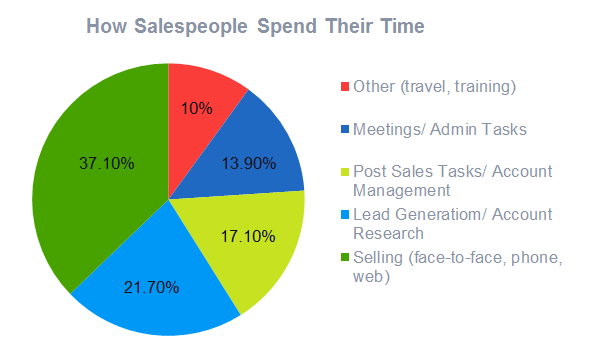
Now think of it in reverse: in return the CRM database stores all of your information, contacts, activities and sales templates in one place that you can access at any time and from anywhere. Nothing is lost or forgotten. And you don’t have to have your memory cluttered with gigabytes of sales data. It doesn’t sound so bad anymore, does it?
3. CRM is too complex
One of the most common scares is that using CRM requires a degree in IT. However, most modern cloud-based CRM systems have evolved and now aim at simplifying each and every step to suit everybody’s needs. User-friendly and intuitive CRM software of today serves the purpose of making your life easier, not more complex.
Yes, you will have to invest some of your time in learning the system, but this is nothing new. How long did it take to learn how to use your smartphone? Not long, right? And now you can’t live without it.
With sales CRM, you will start with the basics, and the more advanced functionality will come as you use the system more.
4. It’s my territory
Sales people can be very protective of their information, i.e. your leads. As a result sharing your insights with others can be viewed as a threat. Entering all lead-related data into a shared database is associated with simply giving your opportunities away, and in the end jeopardizing your commissions.
But, ask yourself this – does being protective of your leads help you in any way, if the result is that those leads are being exposed to poor service or a lack of attention?
CRM itself won’t take leads away from you, but it will help you turn those leads into paying customers quicker and at a lower cost. Leads who have a better experience become customers – you know it too well.
5. The “Big Brother” effect
I’ve overheard sales people say that CRM is just another tool for their managers to keep an eye on them.
What about you? Do you feel tracked and even spied on, where a sales CRM tells the manager how many phone calls you made during the day, how many e-mails you wrote, sales opportunities you registered and whether or not you neglected anyone. And you know what?
You might be surprised, but I have to agree with you – you have a point here!
Even though a centralized database is a good thing by and large, but when it turns into policing every minute action the whole purpose simply gets lost. A good CRM should track only the necessary information. And in the end, what really matters is whether or not you’re reaching your targets, right?
On the other hand, a recent CRM analysis by CSO Insights revealed that CRM adoption leads to a 56.9% rise in the quality of communication between sales reps and sales managers.
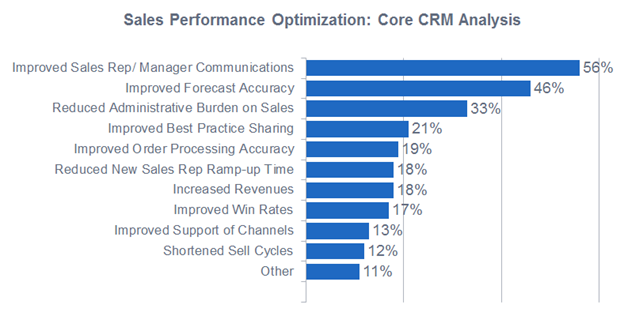
6. I wasn’t hired to do this
Call me materialistic, but my guess is that most sales people are motivated by commissions. Am I right? I know I would be if I worked in sales!
And at first glance, I can understand why you might think that entering data into a CRM system might not bring you closer to the big bucks. At least not obviously so. You simply don’t see any practical value behind it.
In order to see this hands-on value, you need training that will demonstrate to you how CRM can improve not only lead generation, but also lead nurturing. You have to see the time-saving benefits of following a pre-defined and automated sales process.
And you need time to appreciate the advantage of having a centralized customer database. Training here will help sales people to discover that the time spent on updating CRM equals to the time spent on properly preparing for a new sale. And this is something that WILL bring you the big bucks!
Conclusion
Isn’t it ironic? Sales people gain the most from implementing CRM software, and yet they are the first to shoot it down.
When you think of the advantages that CRM brings to sales people, they are quite straightforward:
- Storing information online vs in your head
- Automating admin tasks vs manually writing them on Post-it notes
- Speeding up your sales cycles by using simple and easy-to-use software
- Saving time on follow-ups, which you also won’t forget
- Keeping everyone in the loop of what you’ve achieved and where you stand
- Improved communication with your sales manager and colleagues
To sum it all up, CRM software is able not only to teach you how to sell more efficiently, but it can also give you modern tools that will make the selling process faster, which is the shortest way to your well-deserved commission.
I know we haven’t covered all of the reasons why sales people do not like CRM.
What are some of the reasons you have had? Let us know below.
P.S. If you’re struggling with getting everyone on board with CRM, then download our free CRM adoption guide here.
